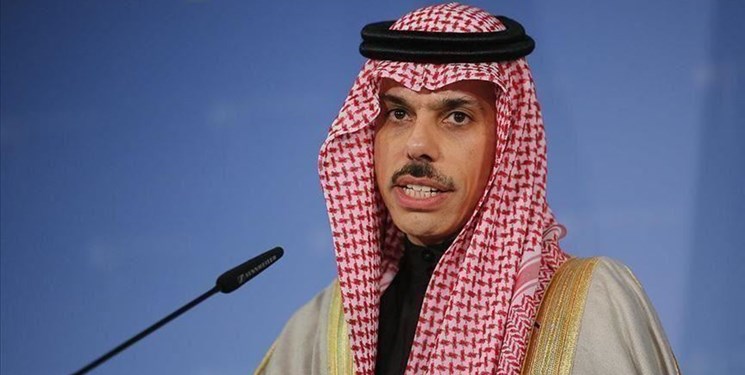Speaking to the website of the Strategic Council on Foreign Relations, Reza Mirabian, referring to the news published in connection with the Saudi Foreign Ministry’s plan for a massive ceasefire throughout Yemen under UN supervision and the lifting of the siege of Sanaa airport, said: Ansarollah had announced from the beginning that the ceasefire alone has no meaning, and this ceasefire must coincide with the lifting of all air, land and sea sanctions, as well as the cessation of Saudi aggression and bombing of Yemen.
Dimensions of Saudi ceasefire plan in Yemen
Referring to the reaction of the spokesman of the Yemeni negotiating team and the criticism of the re-presentation of ideas by Saudi Arabia that have already been considered, he said: The recent offer by the Saudis to Yemen for a ceasefire does not address the two issues that the Yemenis are emphasizing, and they merely point out that some vessels will be released to enter the port of Hodeidah and flights to Sanaa be made with the permission of the Saudis themselves.
The expert on West Asia affairs said that Saudi Arabia still has not allowed free flights to Sanaa, adding: There is no reference in this proposal to announcing a cessation of hostilities and aggression and the lifting of all sanctions, so there was nothing new in this proposal and it was designed solely to prevent progress in Ma’rib Province.
Yemeni field situation
Referring to the situation on the ground in Yemen and the complete liberation of the western areas of Ma’rib by Ansarollah and their insistence that they respond to any attack on Yemen with missiles, Mirabian continued: Ansarollah has reached the gates of the city and does not want to take over the city by fighting. They are negotiating with the Ma’rib tribes to take over the city peacefully and without bloodshed, while in practice it can be said that the city is under complete siege.
He added: Ansarollah’s military spokesman said in a statement that as long as the Saudis do not stop their past behavior and not stop the aggression, Saudi Arabia will continue to strike deep into Saudi Arabia with drones and ballistic missiles or cruise missiles, and with much more severity.
Referring to the remarks of the US State Department’s vice-spokesperson remarks on the need to accept the Saudi ceasefire plan to save the Saudis from defeat in Yemen, the expert on West Asia affairs said: Mr. Abdul-Malik Badreddin, the leader of Ansarollah, on the sixth anniversary of the Saudi invasion explicitly announced: It does not matter to us what the United States or the United Nations want or what other countries want, what is important to us is that Saudi Arabia stops its aggression and lifts the siege of Yemen and accepts Yemen’s territorial integrity, independence and sovereignty.
Mirabian continued: Ansarollah emphasizes that this amount of war damage during six years must be compensated; in fact, they offered Saudi Arabia to pay for the damages of the six-year war, that is, first to pay all the salaries of the Yemeni workers for ten years, and secondly to pay for the cleansing and reconstruction of Yemen, which of course, Saudi Arabia has not yet accepted.
Saudis are forced to surrender
Assessing the state of the Yemen war despite Ansarollah’s advances and Saudi political and field defeats, he said: It seems that the Saudis have to give up in the face of this forward-looking trend which we are witnessing and have no choice but to do so. According to Mr. Abdul Malik Badreddin, the United States, despite its efforts to prevent the attack on the Ma’rib and the advances of Ansarollah, was not successful and such measures will not affect the course of the war and they will continue their policies and strategies.
Mirabian, meanwhile, stressed that the process of accepting defeat by Saudi Arabia may take some time, but they will have no choice but to accept Yemen’s sovereignty and political will and independence, pay war damages to Yemen, end attacks and lift sanctions.
Saudi Arabia seeks to buy time
The expert on West Asia affairs said: Saudi Arabia is trying to buy time by presenting repetitive and deceptive plans for a ceasefire, adding: With those measures, Saudi Arabia is looking to buy time and to show the United States and the West that they are looking for peace and deceive public opinion by saying that they are after an end to the war and seek peace and ceasefire; but the leaders of Ansarollah, realizing those objectives at the present juncture, do not accept such plans.
Mirabian explained: It seems that at least the Yemeni people and the public opinion of the world know that whoever started the war must end it. Ansarollah and Yemen did not start the war, it is Saudi Arabia that started the war. It is also very clear that they have to officially announce in an official statement by the Saudi government that any military operation against Yemen has been stopped and all sanctions have been lifted. The issue of damages is also clear and its amount should be estimated.










0 Comments